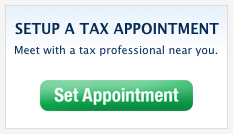What Forms are Required for a Self-Employed Person to File Taxes?
There are many wonderful benefits to being self-employed. You get to work when and where you choose. You can set your own pay rate, deadlines, and more. One downside to being self-employed, however, is that you’re on your own when it comes to paying taxes. While others are provided necessary forms by their employers, it’s up to you to find the appropriate forms yourself, to get them filled out accurately and correctly, and then to send them off to the IRS and wait on the results. The process can be tricky, but it’s certainly not impossible. Besides, if you’re capable of making money all on your own, you’re capable of taking care of your taxes!
The first thing to do is to determine whether or not you actually qualify as “self-employed” and/or are required to pay taxes according to the government. Self-employed individuals are those who run their own trade or business or who otherwise work independently. If you make more than $400 per year as a result of your work, then you are legally required to file taxes. Not reporting your earnings could end up getting you into big trouble, and if you’re being paid via check, Paypal, or some other trackable source, you are risking being caught.
Once you have determined that you are, indeed, self-employed, you then have to determine which form is the right form for you and your situation. Many self-employed individuals who file taxes are counted as sole proprietors. You fit into this category if you work as a contractor or a for-profit salesperson without being counted as an actual employee. Those who meet these qualifications can file a Schedule C or a Schedule C-EZ if they meet certain qualifications. If you have questions about which form to file or are unsure if you’re using the right form, it is wise to take your concerns to a professional tax preparer.
When you know you’ve got the right forms in hand, it’s time to start gathering any and all necessary documentation. Having everything you will need on hand will make the entire process go much more smoothly and easily Gather your driver’s license or state issued identification card, your social security card or number, your return from the previous year, and any records you have kept during the year. Your records should include your earnings as well as documentation for any deductions you plan to make.
Keep in mind that the self-employed often miss out on valuable tax breaks that they could be receiving. To avoid having this happen to you, research different deductions for the self-employed. You can receive tax breaks for operating a home office, your gas and travel costs that are related to your job, office and business supplies, the cost of entertaining clients, and so much more. It is important, however, to keep detailed records and/or receipts for any purchase or expense that you plan to later write off. Without proper documentation, you may not get the break you deserve.
Have a tax question? Ask one of our tax professionals.



